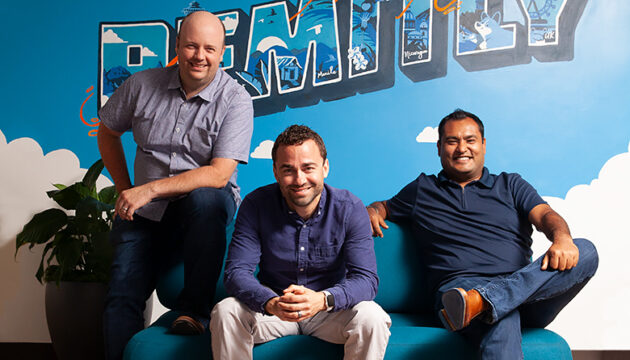Remitly co-founder joins English soccer team’s ownership group, with plans to harness tech and AI
Shivaas Gulati needed a break.
More than 11 years after helping to start Remitly, the Seattle digital remittance company, Gulati said building a tech company had taken its toll. In 2022, he moved with his family to London to step back and recharge and see how a couple years away would feel.
Energized and starting to think again about the passions and hobbies that excite him, Gulati zeroed in on something earlier this year.
“One day I was like, ‘I see a lot of football,” he said, using the more ubiquitous term for soccer outside of the U.S.
He began to explore where his passion for sports and soccer could intersect with his tech background, seeking to better understand how soccer clubs are run, what the business challenges are, and if and how they use technology.
“Tech is everywhere,” Gulati said. “Every company uses it in some way or the other. And sports is no different.”
After talking to numerous clubs, Gulati seized on the opportunity to join an ownership consortium that purchased Southend United, a football club founded in 1906 and located in Southend-on-Sea, about an hour from London. The team competes in the National League — the fifth tier of English football, in which the Premier League is tops.
The announcement was made official on Friday, and with his investment and board seat, Gulati becomes the 11th member of the consortium — dubbed Custodians of Southend United.

Gulati has also returned to Seattle where he remains plugged into Seattle’s tech scene. The longtime angel investor recently joined the board of Foundations, an organization to support startup founders with shared workspace, mentorship and more.
But from a distance and via frequent trips back to England, Gulati will pursue his soccer passion and use his background to help guide a more robust technology adoption at Southend. As with teams in Seattle, such as the Sounders and others, that translates to advances on the playing side — wearables, player analytics, game analytics, scouting, recruiting — and the business side — fan engagement, commercial opportunities, strategic partnerships, etc.
“We can reach every fan individually in a personalized way today that wasn’t possible a decade-plus ago,” Gulati said.
And artificial intelligence, as it seems to be doing across every other industry and business, will play a role. Gulati said the more forward-thinking organizations are already considering how to invest in and use AI.
“If you think about a startup’s journey, you have an idea, you prototype it, you test it for a few months, and then you start to grow it, and you want to hit product market fit,” he said. “I think AI and sports will be similar, where clubs will start testing it, and then they’ll hit product market fit with that initiative, and then it’ll take off.”
Half a million people live in Essex County where Southend is based, Gulati said. To engage with and deepen the relationship with that potential fan base, he’s thinking about software and AI.
“I don’t have to go out and hire a team of, let’s say, performance analytics, people,” he said. “I can build those things in house and have AI help us to augment our coaching staff or uncover new business opportunities in the region.”
Gulati and Justin Rees, an Australian entrepreneur who is chairman of the consortium, even used AI to bypass lawyers and draft Gulati’s purchase agreement and contracts.
Sports businesses are not any different than any other business, in Gulati’s view. Challenges such as strategic alignment, execution, tracking goals, measuring performance, coming up with metrics, coming up with ideas — those same problems exist in a football club.
And there are a lot of similarities in terms of execution.
“The same kind of grit, tenacity, planning and iteration you need in a startup or a tech company, I hope to bring all that to Southend and use that as an advantage,” Gulati said.

